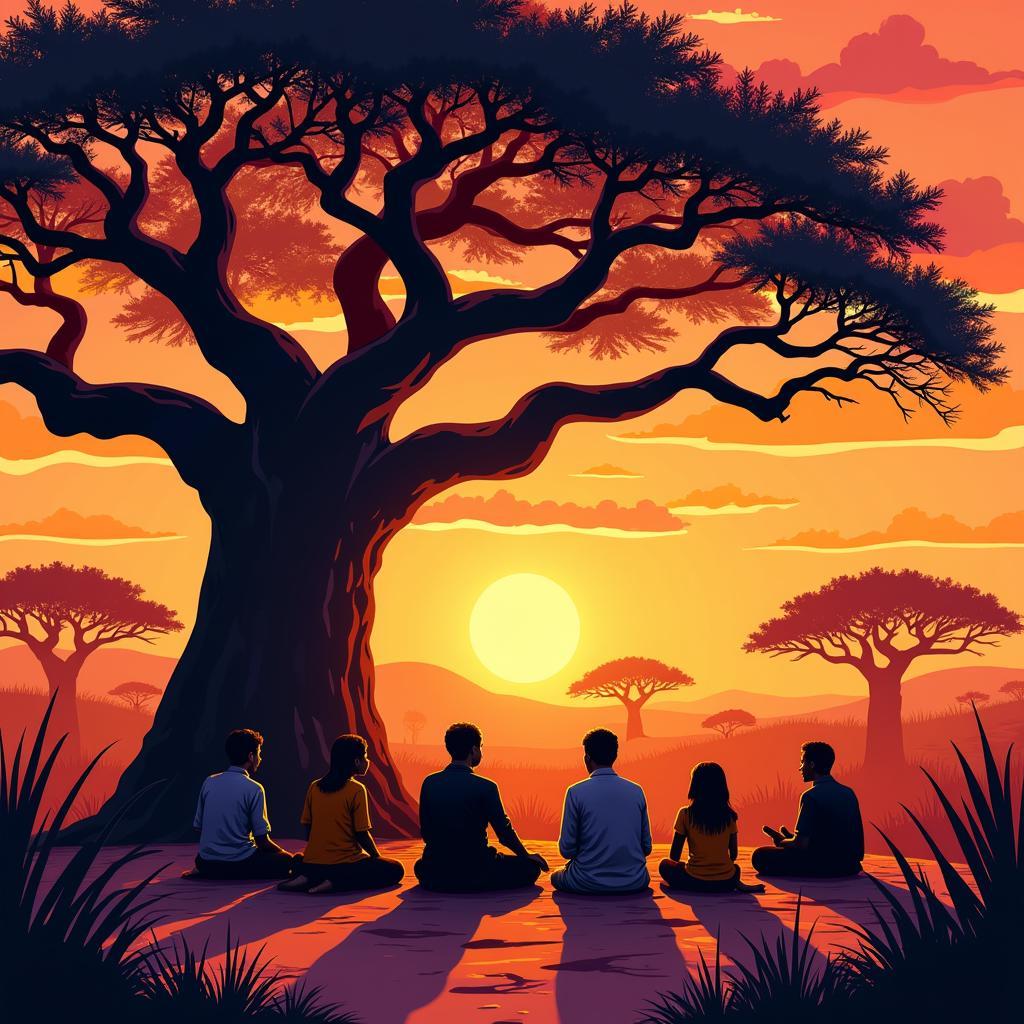Hello in African Languages: A Diverse Tapestry of Greetings
Africa, a continent renowned for its rich cultural heritage, boasts an astounding linguistic diversity. With over 2,000 spoken languages, each more distinct and captivating than the last, exploring African greetings offers a glimpse into this cultural kaleidoscope. “Hello” in African languages transcends a simple salutation; it’s an invitation to connect, a celebration of shared heritage, and a testament to the continent’s vibrant tapestry of cultures.
Beyond “Hello”: The Significance of Greetings in Africa
In many African cultures, greetings extend beyond a cursory “hello.” They often involve inquiries about one’s well-being, family, and even livestock. This reflects the deep-rooted sense of community and interconnectedness that permeates African societies. Greetings are an essential social ritual, fostering a sense of belonging and respect.
For instance, in some East African cultures, the Swahili phrase “Habari gani?” which translates to “What’s the news?”, is a common greeting. The response is not merely “I’m fine” but a sharing of news, however small, signifying engagement and connection.
A Journey Through Linguistic Diversity: Exploring “Hello” in African Languages
From the melodic tones of Swahili to the rhythmic clicks of Khoisan languages, each region in Africa presents a unique linguistic landscape. Here’s a glimpse into how to say “hello” in a few African languages:
- Swahili (East Africa): “Hujambo” (singular) or “Hamjambo” (plural)
- Yoruba (West Africa): “Ẹ n lẹ o” (Good morning), “Ẹ kaaro o” (Good afternoon), “Ẹ ku irole o” (Good evening)
- Amharic (Ethiopia): “Selam”
- Zulu (South Africa): “Sawubona” (singular) or “Sanibonani” (plural)
- Hausa (West Africa): “Sannu”
This is just a small sampling of the vast array of greetings found across Africa. Learning even a few phrases in different African languages can enrich your travel experiences and demonstrate respect for the local cultures.
The Power of Language: Bridging Cultural Divides
“Learning to say ‘hello’ in an African language is more than just a linguistic exercise; it’s a gesture of respect and a bridge to understanding a different culture,” says Dr. Abena Ngugi, a linguist specializing in African languages. “It opens doors to meaningful interactions and fosters a sense of connection.”
Frequently Asked Questions about African Languages
1. What is the most spoken language in Africa?
While many assume it’s Swahili, Arabic actually holds the title of the most spoken language in Africa, primarily due to its widespread use in North Africa.
2. Are African languages difficult to learn?
Like any language, the difficulty of learning an African language depends on your prior linguistic experience and the specific language you choose. Some, like Swahili, have a relatively straightforward grammatical structure, while others, like the Khoisan languages with their unique click consonants, can be more challenging.
3. How can I learn an African language?
Numerous resources are available, including online courses, language exchange programs, and textbooks. Immersing yourself in the culture through travel or connecting with native speakers is also incredibly beneficial.
Beyond “Hello”: Continuing Your Exploration of African Cultures
From the vibrant rhythms of Afrobeat music to the intricate designs of traditional textiles, Africa offers a wealth of cultural treasures to explore. Delving into its diverse languages is just the beginning of a captivating journey of discovery.
For further insights into African cultures, you can explore articles on African guy saying see you later nooberinos, about African grey parrot in Hindi language, and African countries their capital and currency.
Unveiling the beauty of African languages, starting with a simple “hello,” opens a window into the heart of this captivating continent. So, embrace the linguistic diversity, embark on a journey of cultural exploration, and discover the magic of connecting with Africa through its vibrant languages.
Need help? Contact us at Phone Number: +255768904061, Email: [email protected], or visit our office at Mbarali DC Mawindi, Kangaga, Tanzania. Our dedicated customer support team is available 24/7 to assist you.

